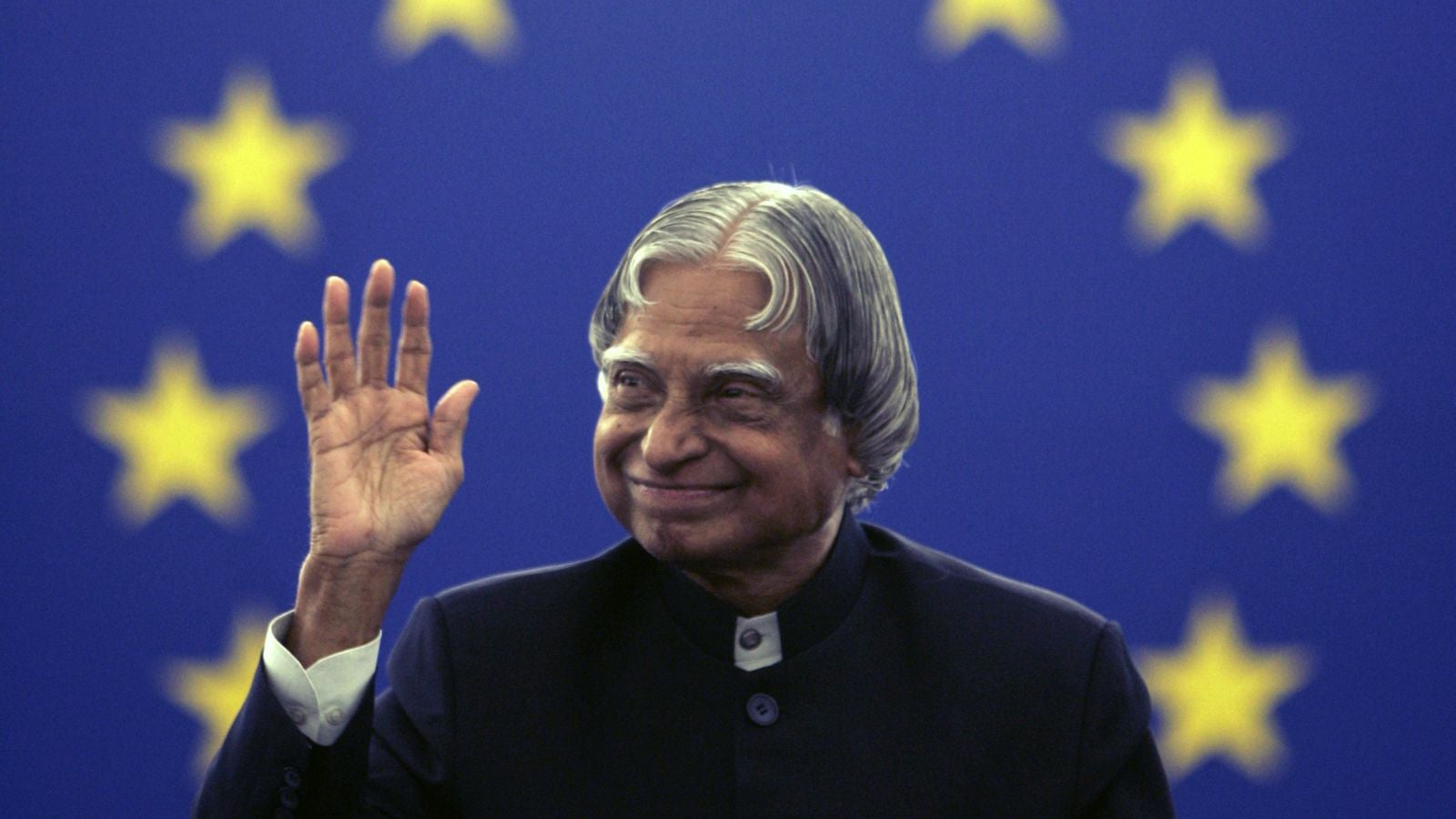India’s most famous rocket scientist—and former president—dies at 83
Avul Pakir Jainulabdeen Abdul Kalam—India’s 11th president and its most famous rocket scientist—has died. Kalam, who was 83 years old, reportedly suffered a cardiac arrest and collapsed during a lecture at the Indian Institute of Management, Shillong on July 27. He is survived by a 99-year-old brother.


Avul Pakir Jainulabdeen Abdul Kalam—India’s 11th president and its most famous rocket scientist—has died. Kalam, who was 83 years old, reportedly suffered a cardiac arrest and collapsed during a lecture at the Indian Institute of Management, Shillong on July 27. He is survived by a 99-year-old brother.
A self-described “scientist, teacher, learner and writer,” Kalam’s journey took him from distinctly humble beginnings in Tamil Nadu’s Rameshwaram—where his father once worked as a boatman—to the highest office in the country, en route playing a key role in building India’s satellite and missile programme.
In the early decades of his career, Kalam—educated at St. Joseph’s College in Tiruchirappalli and the Madras Institute of Technology—worked on India’s space programme, successfully developing indigenous satellite launch vehicles.
By 1982, he left the Indian Space Research Organisation (ISRO) to become the director of the Defence Research and Development Laboratory. He led India’s Integrated Guided Missile Development Programme, and under his supervision, the short and medium-range ballistic missile projects—Prithvi and Agni, respectively—were successfully completed.
In a little over a decade, Kalam became one of the most influential scientists in the country, later serving as the principal scientific advisior to Atal Bihari Vajpayee’s Bharatiya Janata Party-led government between 1999 and 2001.
But just before taking up that job, Kalam led India’s successful nuclear tests in Pokhran in 1998. His commitment towards testing the weapons was apparently so intense that colleagues coined a word—”kalamitous”—to describe ”the outspokenness with which Kalam greeted each new delay in the tests, or in getting the money to develop the missiles to deliver nuclear bombs,” the New York Times reported.
Despite the instant international condemnation that followed the tests, Kalam and his team were widely celebrated in the country. India’s “missile man”—with a shock of middle-parted, silver-grey hair—became an unlikely hero in a country where scientists are rarely treated as celebrities.
That hairstyle—painstakingly maintained by the scientist—became even more iconic after Kalam became India’s 11th president in 2002. The third Muslim head of the state, and the first bachelor and scientist to live in the massive, 340-roomed Rashtrapati Bhavan, Kalam was overwhelmingly elected by Indian lawmakers cutting across party lines.
The highlight—and the “toughest decision”—of his presidential tenure was when he sent a controversial bill back to the parliament for reconsideration. The bill had proposed to prevent disqualification of MPs holding “offices of profit.”
Immensely popular, Kalam used the presidential platform to reach out to the public like few of his immediate predecessors had done. The result, as political scientist Pratap Bhanu Mehta wrote in 2007, was:
The extent of Kalam’s popularity was truly staggering. Of late he became a middle-class icon, but the depth of his support would make politicians envious. The Foundation for Academic Access and Excellence, which gives scholarships for higher education to students from marginalised communities, particularly dalits, would routinely ask thousands of applicants to name a role model. Kalam won that contest hands down even amongst the marginalised; it is a sobering thought that no politician is ever named. Which was the last political leader who could so effortlessly transcend class barriers?
Even abroad, his influence was palpable. The Swiss, for instance, declared May 26 as “Science Day” after the Indian president made a visit in 2005.
A lover of classical Carnatic music, who often played the Veena—a large plucked string Indian instrument—and a poet who wrote in Tamil, Kalam immersed himself into academia after declining to run for a second-term as president in 2007. He travelled widely, lecturing across the country and frequently spending time with students. And that is how he passed away.